标签:
专辑文案:(声明:文案均由授权方提供,并不表示一听赞同其立场或观点)
For any youngsters or neophytes out there who define David Bowie by his recent regurgitation of currently hip musical styles, a visit to his back catalogue is in order. Recorded during his most fertile and productive period, Hunky Dory is a powerhouse of a record that reminds us that Bowie was once a leader so far ahead of the game that he seemed to be writing the rules as he went along.
Hunky Dory is Bowie's most varied recording to date, wandering fluidly on a musical terrain that shifts unexpectedly between melodramatic show tunes, flawlessly constructed pop, trippy art-rock, and earthy folk. Somehow, Bowie pulls off all of these styles with equal aplomb, lending his remarkable songwriting ability to each number and never allowing the style to outweigh the substance.
The album's most enduring and ironically prophetic moments come near its ending, with two paeans to the cult of celebrity and the price of fame. "Andy Warhol" is a piercing ode to one of Bowie's friends and biggest influences, an unblinking look at the emptiness of image: "Andy Warhol looks a scream / hang him on my wall / Andy Warhol, silver screen / can't tell them apart at all." "Song For Bob Dylan" is a brilliant examination of the use of an alter-ego to step out of one's self and create powerful art: "Now hear this Robert Zimmerman / Though I don't suppose we'll meet / Ask your good friend Dylan / If he'd gaze a while down the old street / Tell him they've lost his poems / So they're writing on the wall."
Within a year of this recording, David Bowie would come to personify both of these ideas, creating the androgynous, glam-rocking alter-ego of Ziggy Stardust, soon after shedding the image that had grown as static as a painting on a wall and creating a new persona to push himself forward.
Hunky Dory is Bowie's most varied recording to date, wandering fluidly on a musical terrain that shifts unexpectedly between melodramatic show tunes, flawlessly constructed pop, trippy art-rock, and earthy folk. Somehow, Bowie pulls off all of these styles with equal aplomb, lending his remarkable songwriting ability to each number and never allowing the style to outweigh the substance.
The album's most enduring and ironically prophetic moments come near its ending, with two paeans to the cult of celebrity and the price of fame. "Andy Warhol" is a piercing ode to one of Bowie's friends and biggest influences, an unblinking look at the emptiness of image: "Andy Warhol looks a scream / hang him on my wall / Andy Warhol, silver screen / can't tell them apart at all." "Song For Bob Dylan" is a brilliant examination of the use of an alter-ego to step out of one's self and create powerful art: "Now hear this Robert Zimmerman / Though I don't suppose we'll meet / Ask your good friend Dylan / If he'd gaze a while down the old street / Tell him they've lost his poems / So they're writing on the wall."
Within a year of this recording, David Bowie would come to personify both of these ideas, creating the androgynous, glam-rocking alter-ego of Ziggy Stardust, soon after shedding the image that had grown as static as a painting on a wall and creating a new persona to push himself forward.
本专辑因版权原因或者内容问题不提供试听与下载.
专辑《Hunky Dory》的歌曲列表
| 序号 | 歌曲 | 播放 收藏 歌词 下载 |
| 01 | Changes | |
| 02 | Oh! You Pretty Things | |
| 03 | Eight Line Poem | |
| 04 | Life On Mars? | |
| 05 | Kooks | |
| 06 | Quicksand | |
| 07 | Fill Your Heart | |
| 08 | Andy Warhol | |
| 09 | Song For Bob Dylan | |
| 10 | Queen Bitch | |
| 11 | The Bewlay Brothers |
David Bowie的精选专辑
-
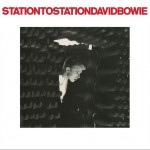 Station To Station (2016 Remastered Version) 播放整张专辑 2017-02-10
Station To Station (2016 Remastered Version) 播放整张专辑 2017-02-10 -
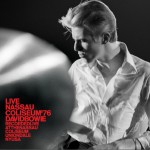 Live Nassau Coliseum '76 播放整张专辑 2017-02-10
Live Nassau Coliseum '76 播放整张专辑 2017-02-10 -
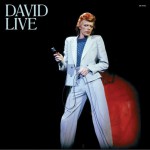 David Live (2005 Mix, Remastered Version) 播放整张专辑 2017-02-10
David Live (2005 Mix, Remastered Version) 播放整张专辑 2017-02-10 -
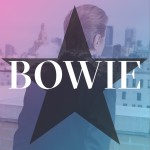 No Plan 播放整张专辑 2017-01-08
No Plan 播放整张专辑 2017-01-08 -
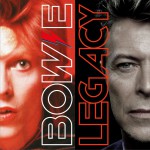 Legacy 播放整张专辑 2016-11-11
Legacy 播放整张专辑 2016-11-11 -
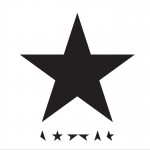 Blackstar 播放整张专辑 2016-01-08
Blackstar 播放整张专辑 2016-01-08 -
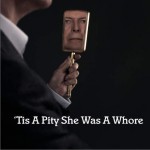 'Tis a Pity She Was a Whore(Single) 播放整张专辑 2014-11-10
'Tis a Pity She Was a Whore(Single) 播放整张专辑 2014-11-10 -
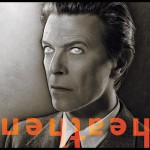 Heathen (Independent Retail Package) 播放整张专辑 2013-02-26
Heathen (Independent Retail Package) 播放整张专辑 2013-02-26









